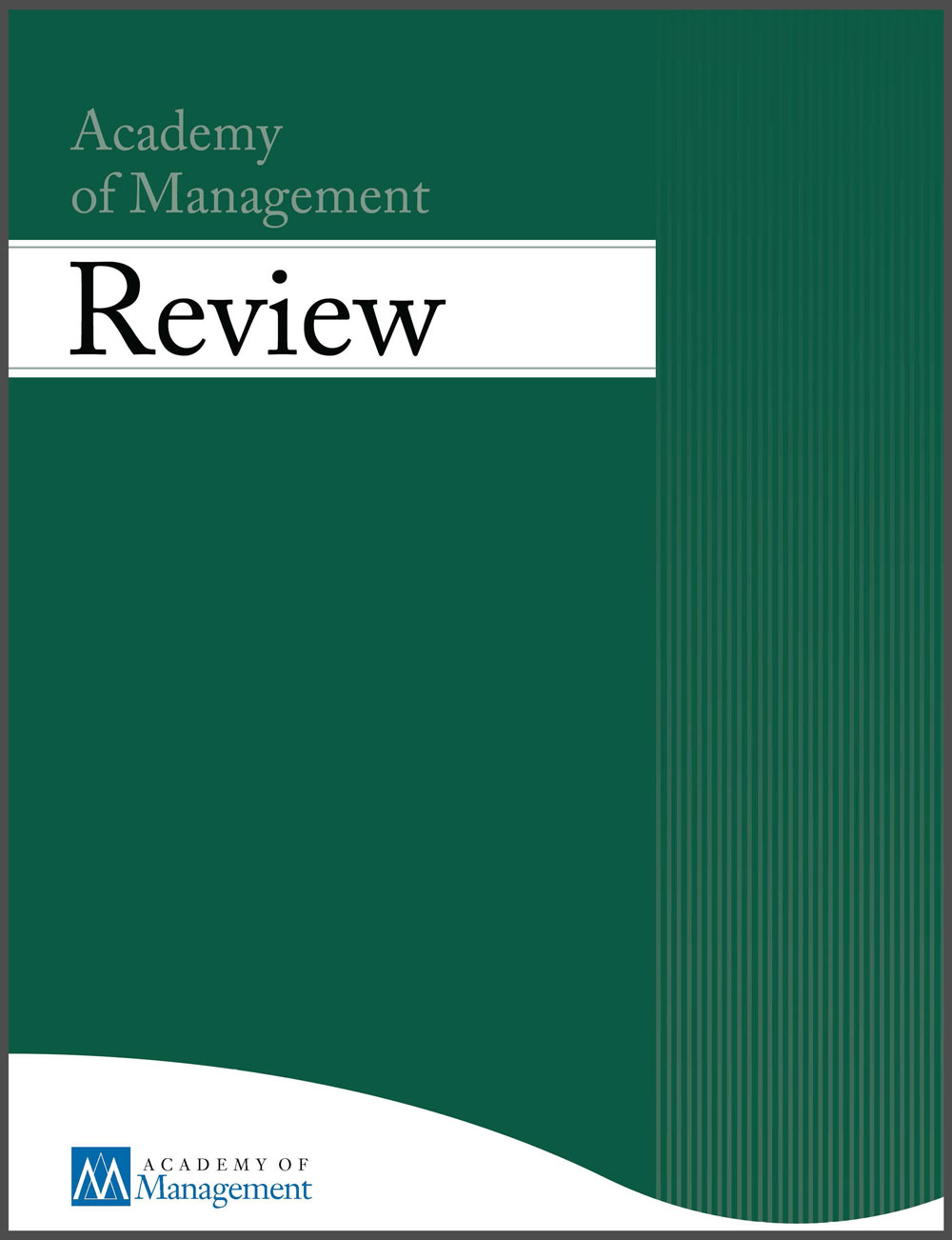在未知的水域航行:高管如何为应对前所未有的冲击提出高质量的战略建议
IF 19.3
1区 管理学
Q1 BUSINESS
引用次数: 0
摘要
高管们如何以及为什么要为公司应对重大的、前所未有的外部冲击提出高质量的想法?我在公司对这种冲击的战略反应的背景下,提出了一种新颖的、基于突发事件的高管创意起源理论。通过将高层管理团队视为一个复杂的系统,我建议高管们可以通过(减轻或加强)动态的、具体情况的、相互关联的、位于个人、二元和团队层面的分析结构的工作,得出高质量的冲击响应想法。这些结构是根据震源地震触发的紧急过程形成和演变的。在我的理论中,我将双过程模型与想法产生联系起来(即,问题定义和想法产生的相互关联的执行),识别控制处理的不同模式和二元动力学的分类,并检查自主与动态驱动的新图式处理的互补作用。一般来说,现有的关于高管在战略情境中的角色的文献倾向于将高管视为单一的决策主体,这些决策主体由具有持久的、独立于情境的、事先已知的特征和/或从事稳定、统一的互动的个人组成。相反,我得出的结论是,面对前所未有的冲击等未知领域的个别高管,实际上可能会以更多变、更多样化、更针对冲击的方式提出冲击应对想法。本文章由计算机程序翻译,如有差异,请以英文原文为准。
NAVIGATING UNCHARTED WATERS: HOW EXECUTIVES ORIGINATE HIGH-QUALITY IDEAS FOR STRATEGIC RESPONSES TO UNPRECEDENTED SHOCKS
How and why do executives originate high-quality ideas for their firms’ responses to major, unprecedented, exogenous shocks? I develop a novel, emergence-based theory of executive idea origination in the context of firms’ strategic responses to such shocks. By considering the top management team as a complex system, I suggest that executives may arrive at high-quality shock response ideas due to the (mitigating or reinforcing) workings of dynamic, situation-specific, interrelated constructs located at the individual, dyadic, and team levels of analysis. These constructs are formed and evolve according to an emergence process triggered by the focal shock. In my theorizing, I link dual-process models to idea origination (i.e., the interconnected execution of problem definition and idea generation), identify different modalities of controlled processing and categorizations of dyadic dynamics, and examine the complementary role of autonomous versus dynamics-driven new schema processing. Extant literature on executives’ roles in strategic situations, in general, has tended to consider TMTs as monolithic decision-making bodies of individuals carrying enduring, situation-independent, ex ante known characteristics and/or engaged in stable, uniform interactions. Instead, I conclude that individual executives navigating uncharted waters, such as unprecedented shocks, may actually originate shock response ideas in much more fickle, multifarious, and shock-specific ways.
求助全文
通过发布文献求助,成功后即可免费获取论文全文。
去求助
来源期刊

Academy of Management Review
Multiple-
CiteScore
24.60
自引率
2.40%
发文量
70
期刊介绍:
The mission of AMR is to publish theoretical insights that advance our understanding of management and organizations. Submissions to AMR must extend theory in ways that develop testable knowledge-based claims. To do this, researchers can develop new management and organization theory, significantly challenge or clarify existing theory, synthesize recent advances and ideas into fresh, if not entirely new theory, or initiate a search for new theory by identifying and delineating a novel theoretical problem. The contributions of AMR articles often are grounded in “normal science disciplines” of economics, psychology, sociology, or social psychology as well as nontraditional perspectives, such as the humanities.
 求助内容:
求助内容: 应助结果提醒方式:
应助结果提醒方式:


